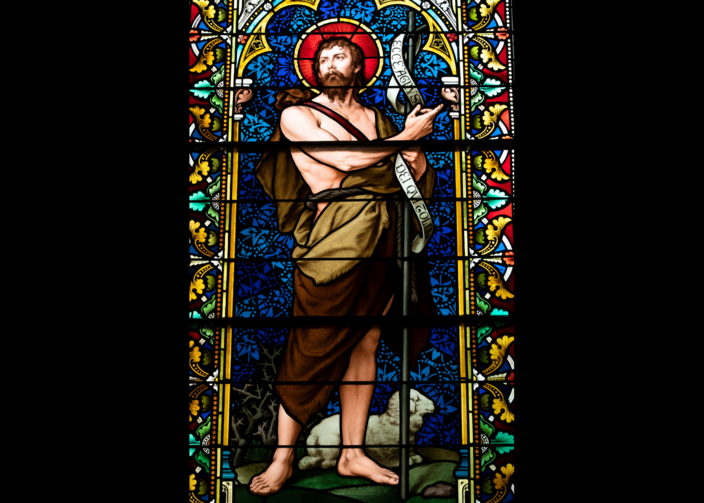A Reflection for the Memorial of the Passion of St. John the Baptist
Find today’s readings here.
“The king was deeply distressed, but because of his oaths and the guests, he did not wish to break his word to her. So he promptly dispatched an executioner with orders to bring back his head.” (Mk 6:26-27)
Mark’s Gospel begins: “The beginning of the good news of Jesus Christ, the Son of God” (Mk 1:1). For Mark’s contemporaries, the use of the term “good news” would not only have invoked Jewish Scripture celebrating God’s victory over evil (Is 60:1). It would have also called to mind imperial Roman propaganda that heralded the “good news” of the birth of Caesar Augustus, known as “son of God” himself. The use of this language for Jesus, a Jewish carpenter from Roman-occupied Palestine, was necessarily political. To profess that Christ is King is also to declare that Caesar is not. From the inception of the first-written Gospel, we learn that Christ’s story is one of confrontation between the reign of God and the reign of man.
Today is the memorial of the Passion of St. John the Baptist, the apocalyptic preacher who proclaims the coming of the Messiah and baptizes Jesus (Mk 1:9-11), marking the start of Christ’s public ministry. Through John’s life and martyrdom, which closely parallels the life of Jesus, we are reminded of the demands required to build the Kingdom of God in a world ruled by human beings.
Although it memorializes John, this Gospel follows Herod, client king of Galilee. Mark portrays Herod not as a distinguished ruler, but rather as a capricious, complicated tangle of emotions. Herod likes to listen to John but is “perplexed” by his preaching; he wants to kill John, but fears and respects him too much to do so. Herod’s daughter, Herodias, dances for him at his birthday banquet, and he offers her anything she wishes for reward. She asks for the head of John the Baptist.
Fragile and desperately concerned for his own reputation, Herod is terribly, truly human—a perfect avatar for the kingdom of man.
Herod knows he should not kill John, a righteous and holy man, but orders his beheading anyway for fear of embarrassing himself in front of his guests. Herod did not envision some grand political vision in his choice to kill John. His eyes were instead cast on the opinions of those around his own table even though they’d soon go home and he’d be left with only his guilt. Fragile and desperately concerned for his own reputation, Herod is terribly, truly human—a perfect avatar for the kingdom of man.
In Herod’s example, we see that the evil in our world is rarely the result of malicious plotting; it’s instead much more trivial. I have never ordered anyone beheaded, but I was once a teenage girl, so I too have been vicious wishing to satisfy a crowd (Mk 15:15). I think we all have, in some way. It is a supremely unfulfilling way to live, always grasping for others’ approval, knowing it will vanish in our hands like vapor in air. Self-serving and fickle—this is the nature of the reign of man, says Mark, and it is why we need Christ to save us from ourselves.
In contrast, the reign of God is steady, anchored in justice, truth and love. Today we memorialize the Passion of John the Baptist, who was martyred in his commitment to that reign. For that, he enjoys an eternal reward greater than anything in Herod’s kingdom. May we all be reminded by St. John’s legacy that Christ truly is the King of kings, and may we have the fortitude to follow him.








